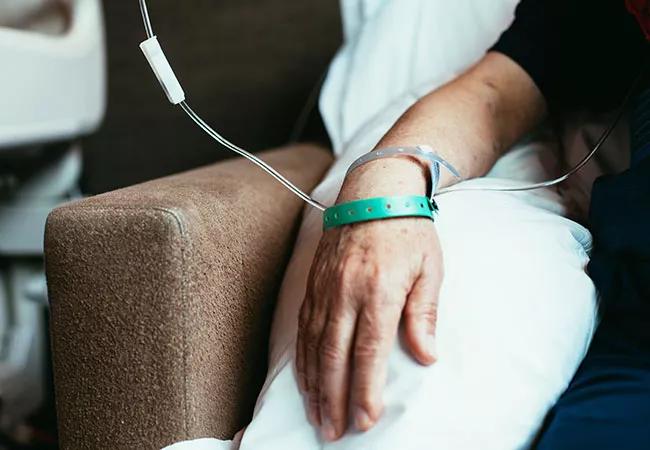Drug makers shouldn’t penalize patients who helped them profit, an oncologist argues

Image content: This image is available to view online.
View image online (https://assets.clevelandclinic.org/transform/c87b8702-5541-43bd-ac08-01321ee5d8f0/650x450-Chemotherapy-IV_jpg)
650×450-Chemotherapy-IV
Each year, tens of thousands of cancer patients selflessly volunteer to participate in clinical trials of experimental drugs. Some of those drugs eventually gain government approval for clinical use. What happens to the patients whose altruism helped get the new treatments to market?
Advertisement
Cleveland Clinic is a non-profit academic medical center. Advertising on our site helps support our mission. We do not endorse non-Cleveland Clinic products or services. Policy
In many cases, while still battling cancer, they’re told by the drug manufacturer that they must get their life-saving treatment from a “commercial supply” — meaning pay out of pocket or hope their insurance covers the medication’s substantial cost.
In this guest column for The Hill, Mikkael Sekeres, MD, MS, explores the little-known practice of post-clinical trial patient abandonment and makes a compelling case for reform.
Dr. Sekeres, Director of Cleveland Clinic Cancer Center’s Leukemia Program and Vice-chair for Clinical Research, writes regularly for various publications about his experiences as an oncologist.
Advertisement
Advertisement
In rehabilitation medicine, the answer might require nuance
Mental health colleagues can provide much-needed perspective
Palliative care specialists know hard conversations can also be valuable ones
Variables affect nuances of the conversation
Authors discuss ethical challenges associated with sponsored genetic testing
Program focuses on nurturing ethics leaders in daily practice
Medical, ethical and legal considerations
An end-of-life dilemma in the intensive care unit